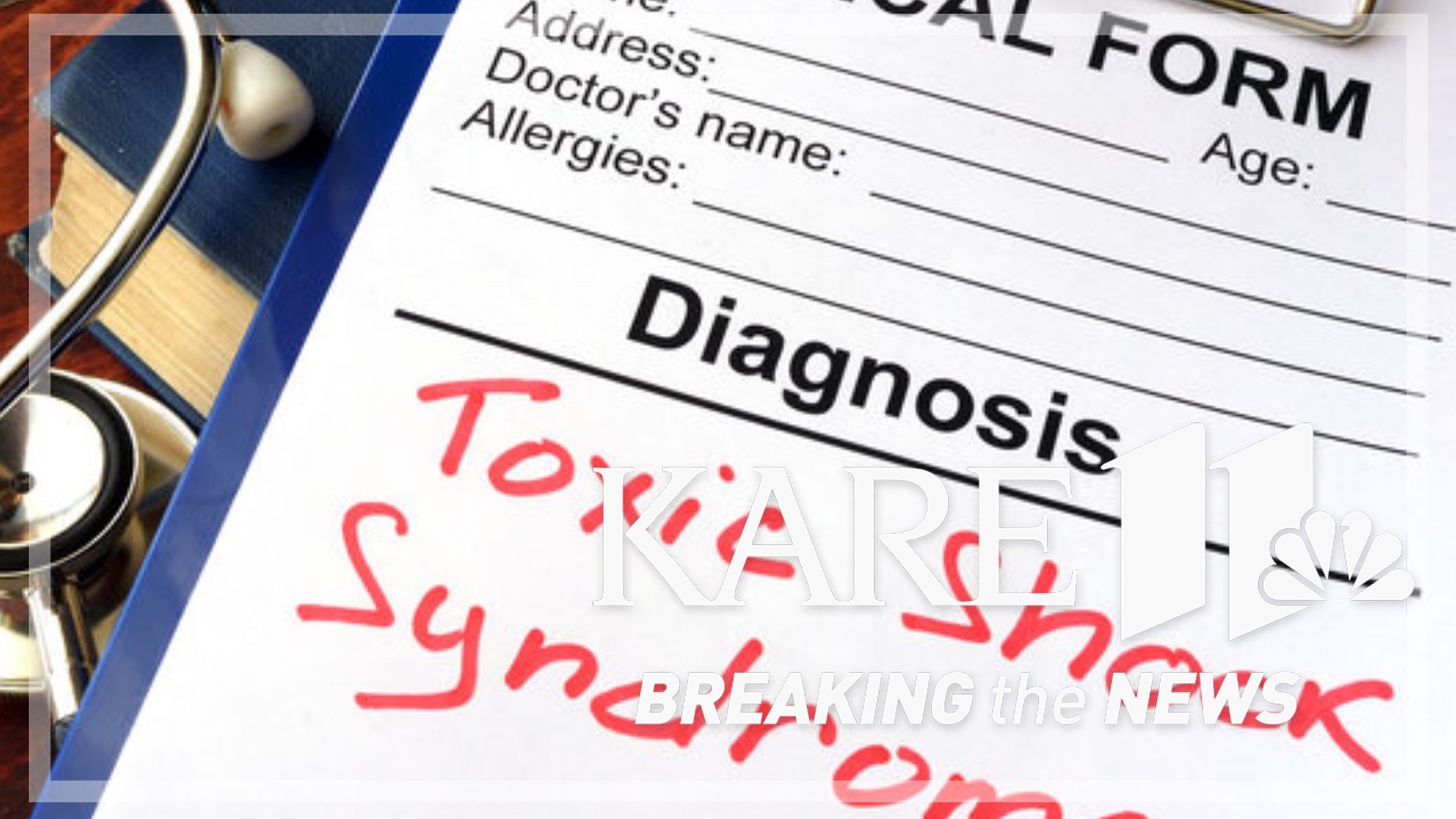MINNEAPOLIS — There have been five cases of toxic shock syndrome (TSS) cases reported in Wisconsin since July 2022, according to the Department of Health Services.
It even prompted DHS to launch an investigation.
Wisconsin typically sees up to one TSS case per year. The last time the state recorded more than one case of TSS was in 2011 when it saw two.
The state's chief medical officer says four of the five latest infections are associated with using tampons. But experts say, despite trying to protect women's health, tampons alone do not cause TSS.
Purdue University history professor Sharra Vostral calls it a complicated topic that has led to mixed messaging and a deep fear that anyone who menstruates is at risk.
"It was just very frightening to think, 'Wait, this tampon could kill me,'" said Vostral. "I don’t want to die like this."
Vostral says that link was necessary to help save lives when the connection was made in the late 1970s. But she says simplifying the facts has led to longstanding misinformation.
"This is only related to tampon use and that's the first thing that people have to know," said Vostral. "The second thing is it requires a few different components."
First, a tampon introduces oxygen into the vagina, which is essentially considered a food source for a particular bacteria called staphylococcus aureus that not everyone even carries. That makes it the second component that can lead to toxic shock. And third, some people haven't yet developed the antibodies to protect against it.
"Those three things are hard to explain and it's why more younger people contract it than older people because their immune system hasn't developed entirely," said Vostral.
It's also why doctors still suggest using a low-absorbency tampon, changing it up to every six hours and not wearing it overnight. Vostral says that's the easiest way to avoid the illness outside of non-invasive testing for that bacteria and antibodies.
"I think we can teach young children, people coming to their first periods, about TSS in a biological way. I think that would help," said Vostral.
KARE 11 found that the Minnesota Department of Education doesn't set specific curriculums, so it's up to every individual district to decide if and how it teaches the subject.
A spokesperson for St. Paul Public Schools, for example, wrote in a statement:
"SPPS covers that in middle school during sixth, seventh and eighth-grade health class. It is part of our human relations and reproductive health unit. We cover puberty, the menstrual cycle and safety and hygiene around these areas."
TSS can be treated with antibiotics and other means to prevent dehydration and organ failure.
As for the cases in Wisconsin, DHS says no deaths have been reported, but all five teenagers were hospitalized due to severe symptoms that can include sudden fever, low blood pressure and rash.
DHS also calls the cases a "coincidence" and that there's no evidence anyone did anything wrong or that any one brand of tampon is unsafe, reiterating the risk is similar regardless of the brand.
The Minnesota Department of Health reports anywhere from zero to four cases in females under the age of 18 between 2015 and 2022.
TSS is also associated with other risk factors such as surgical wounds and childbirth.
Watch more local news:
Watch the latest local news from the Twin Cities in our YouTube playlist:

